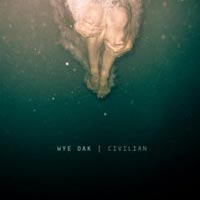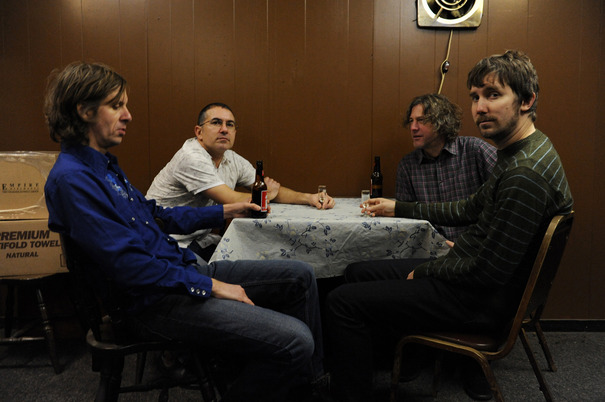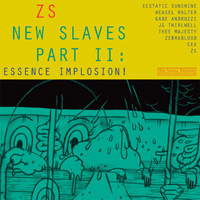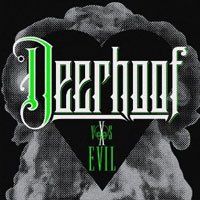 Horseback: The Gorgon Tongue: Impale Golden Horn + Forbidden Planet (Relapse, 5/10/11)
Horseback: The Gorgon Tongue: Impale Golden Horn + Forbidden Planet (Relapse, 5/10/11)
Horseback: “The Golden Horn”
[audio:https://alarm-magazine.com/wp-content/uploads/2011/04/The-Golden-Horn.mp3|titles=Horseback: “The Golden Horn”]Jenks Miller is the sole constant in avant-metal outfit Horseback. Miller’s output — occasionally under his own name, often as Horseback, and recently with the Americana group Mount Moriah — has been a steady trickle over the past three years, with each release offering a new glimpse of the artist’s capabilities. To consider Miller’s art only in terms of his 2010 breakout, The Invisible Mountain, is like considering an iceberg only in terms of its tip.
Such an assumption is also likely to leave you confused upon hearing The Gorgon Tongue, which compiles Impale Golden Horn (Miller’s 2007 debut as Horseback) and last year’s ultra-limited Forbidden Planet cassette. Each is radically different from the other and also from the lumbering kraut-metal/Americana hybrid upon which Horseback built its reputation.
But that reputation came after more than two years of output, slowly revealing the character of the project and the Chapel Hill musician behind it all. Horseback began as a method for Miller to focus his concentration, to help manage his obsessive-compulsive disorder.
Impale Golden Horn — which Miller spent three years recording and reworking before its 2008 release — introduces Horseback as a patient, meticulous sculptor of sound. “Laughing Celestial Architect,” at 17 seconds past the 15-minute mark, is Impale’s second-longest track (behind the 17-minute opener, “Finale”). It’s a slow, smoldering rise, not unlike waking up as sunlight slowly fills the room. This mixture of ascendant dynamics, meditative repetition, and calming timbres is indicative of the collection. It’s a bluff belying all of Miller’s work to follow. It makes the improvisatory follow-up seem almost ironically relaxed.







 )
)




 V/A: SMM: Context (
V/A: SMM: Context (








